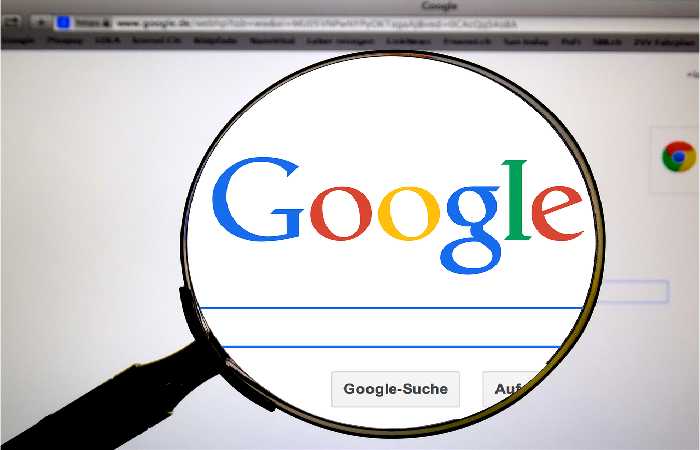Why People Should Stay Away from “Dr. Google”: If you are struggling with a health issue, your first step likely is to explore what’s available online. The Internet can be an invaluable resource, but there are pitfalls that people should be aware of when dealing with medical issues. It can take just one quick Google search to lead to a frightening conclusion, which has the potential to be detrimental for an individual experiencing symptoms of a certain disorder. This article will outline the common problems associated with using online resources to diagnose oneself.
Why People Should Stay Away from “Dr. Google”
1. Searching for Diagnoses
People often search for diagnoses online. There are thousands of diseases with the potential to leave you feeling extremely alarmed and overwhelmed. For many conditions, it is simply impossible to diagnose with the information provided by a quick Google search. Additionally, there is a risk involved with searching for a diagnosis; this is especially relevant for those dealing with anxiety or depression. Unless you are trying to look up things that will keep you safe, like the precursors to a heart attack, Dr. Google may provide you with unnecessary stress.
When you conduct an online search for potential conditions that may be impacting your health, you will likely come across the term “symptoms.” Many serious people about their health tend to read through these symptoms in detail to intensify their diagnosis efforts. When reading through lists of symptoms, it becomes easy to convince yourself that you quickly suffer from a particular condition. You may even say to yourself, “Oh, I have that symptom… and that symptom… and that symptom!” In reality, many people suffer from several different conditions who tend to share similar symptoms. It is straightforward to fall into the trap of thinking you have been diagnosed with a health issue when in fact, your symptoms are perfectly normal.
In reality, when it comes to diagnosing oneself online, you are often told exactly what you want to hear. If you are feeling down or having a lot of trouble, you will likely come across a wealth of information that confirms your negative feelings. If you feel optimistic and happy, you will still find many articles telling you that this is a prevalent type of disorder. It is also straightforward to get caught up in the hype surrounding certain conditions, such as anorexia or bulimia.
2. Relying on Self-Diagnosis
Viral vs bacterial sinus infection its difficult through online to diagnosis because the symptoms are so similar. But a viral infection gets better with rest and a non-acetaminophen fever reducer, whereas a bacterial infection will require an antibiotic. An informed professional will know precisely what kind of bacteria is infecting you. It doesn’t matter if you get the symptoms at the same time; what matters is which one is responsible for them.
Less than 1% of all health conditions require an immediate intervention. This means 90% of all health problems are not emergencies. If you think you might be experiencing something serious (i.e., chest pain, headaches, etc.), it’s best to follow the advice of your Doctor.
3. Health Diagnosis Resources Aren’t Licensed
You may think it is an easy process to search for licensed health diagnosis resources. Still, you may be surprised to find out that many sites claim to give accurate information about various ailments. Some people will attempt to diagnose themselves by visiting numerous websites and seeing which ones seem more credible or truthful. However, you can never truly know if the information on these websites is legitimate. That’s why the only reliable way to receive accurate information is by consulting with a doctor. While websites are not officially regulated, you should follow the advice of medical experts rather than amateurs.
4. Being Misinformed
“Dr. Google” is a great way to misinform yourself. This is especially relevant if you are unfamiliar with basic health concepts or have never been through a physical exam.
People usually rely on “Dr. Google” because they believe in accurate and reliable information. While there are some trustworthy resources, you should be wary of the free material on the Internet. While these sources may be legitimate for certain conditions, they can often create more problems than they solve. You can also find yourself overwhelmed with information and spread yourself too thin. It’s easy to get wrapped up in fear of what might be wrong with you.

5. Getting Confused by False Positives
It is easy to get nervous when using “Dr. Google” because you may end up thinking you have a serious condition. The material you come across will likely include stories about people who got misdiagnosed online. After reading these stories, it’s widespread to become even more worried about your health. People will end up confused because they got presented with stories that include false positives. These stories can be horrifying and misleading.
6. The Risk of Being Ego-Driven
Many people who tend to use “Dr. Google” often do so because they want to feel validated. It’s not uncommon for you to feel a certain level of self-consciousness about your situation, and people will search for medical information to feel better about their status. This is a dangerous cycle that can lead to more confusion. You may even be convinced that you need particular treatment options or medical procedures because of the information you’ve found online. However, it would help if you never made any life-altering decisions based on something you read online.
7. Seeing the World from a Disease’s Perspective
If you have heard that a specific disease is common, there is a chance that you will start to fear that you have it. Your perspective on the World can become very skewed, which can lead to anxiety and even depression. If you spend too much time online looking for potential health issues, this warped perspective can cause problems in your relationships and career. It’s straightforward to feel like you have a lot to lose if you spend too much time worrying about potential health issues.
If you are looking for a more positive way to achieve your health goals, take a few minutes and read this article: Healthy Life Tips That Can Change Your Life
8. Online Persecution
If you are extremely worried about your health, you may come across a wealth of information that makes you feel anxious and afraid. Some websites can push people to self-harm or end up acting out against other people. At times, people will be convinced that they have a condition when they don’t.
9. Not Trusting the Media
It is widespread for people to rely on the media for health care information. However, it’s important to remember that the media does not always give accurate information about certain medical conditions. Many times, they will create unnecessary hype about new trends, and this can lead to some misconceptions. While some news outlets may feel like they are always telling you what’s happening in your body, you should never take their advice over a doctor’s.
10. Not Going to the Doctor
People afraid of their health will often choose not to go to the Doctor. For some people, this may be due to financial reasons. Other people might be fearful of what doctors can find, and they feel like it is better to avoid any treatment options.
While many online health diagnosis resources can help you, you must understand that educated medical professionals know more about health conditions than blogs or websites ever will. Furthermore, the only reliable medical information comes from doctors who are fully licensed to practice medicine. The more reliable the source of your medical information, the better.
Conclusion
As you can see, it’s easy to be scared about your health due to the Internet. People who are afraid of being ill may spend a lot of time searching for health concerns online. However, you should know that the Internet has many inaccuracies, and it can create a lot of unnecessary anxiety.




